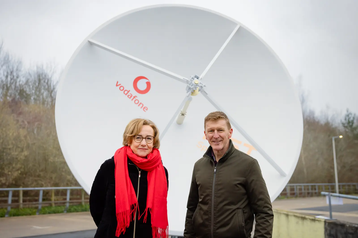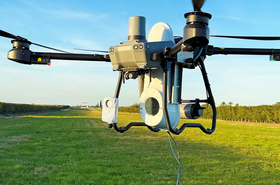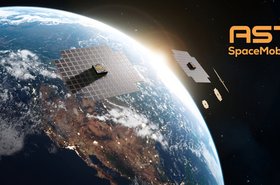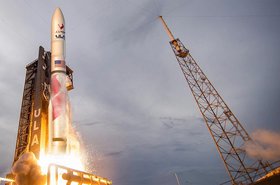Vodafone and AST SpaceMobile claim to have conducted the world's first space video call using a smartphone and satellites in an area where there was no mobile coverage.
The carrier explained that it was able to carry out the call from a remote area of Wales.
Vodafone engineer Rowan Chesmer made the call from the remote location to Margherita Della Valle, Vodafone Group chief executive, using satellites built to offer a full mobile broadband experience.
AST SpaceMobile BlueBird satellites helped to enable the call, while Della Valle was joined by Astronaut Tim Peake, who became the first British astronaut to visit the International Space Station and conduct a spacewalk back in 2015, as the carrier unveiled Vodafone's space-to-land gateway,
“Vodafone’s job is to get everyone connected, no matter where they are. Our advanced European 5G network will now be complemented with cutting-edge satellite technology," said Della Valle.
"We are bringing customers the best network and connecting people who have never had access to mobile communications before. This will help to close the digital divide, supporting people from all corners of Europe to keep in touch with family and friends, or work, as well as ensuring reliable rural connectivity in an emergency.”
Vodafone is aiming to offer the first commercial direct-to-smartphone broadband satellite service in Europe starting later in 2025 and 2026.
The call expands on the existing cellular satellite connectivity agreement that Vodafone and AST SpaceMobile have.
Last month the duo announced an extension to the agreement until 2034.
Vodafone has previously conducted trials with the satellite firm. Last January, it joined AT&T and Google to invest $155 million in AST SpaceMobile.
Founded in 2017, the company’s first test satellite, Bluewalker 1 was launched in 2019; Bluewalker 2 was canceled. Its latest test satellite, Bluewalker 3, launched in 2022.
AST was planning a constellation of almost 170 satellites; the first 20 were originally due to enter operation by 2023, with another 90 deployed through 2024. According to more recent press releases, it seems to have revised its constellation plans down to 100.







